Udemy is the world’s largest marketplace for online learning and teaching. With over 210,000 courses and 64+ million learners, Udemy has become an industry standard for those looking to develop, or learn, new, skills.
But is there something out there that’s better than Udemy? What’s Udemy’s competition like?
Let’s be clear, Udemy is a great platform. But there are sites like Skillshare, Coursera or MasterClass – all of which may offer some features that are better suited to your specific needs.
We'll explore a wide range of Udemy alternatives in this comprehensive guide, showcasing the unique strengths and offerings of each. We've carefully selected these platforms based on factors like course variety, quality, cost, and certification options, ensuring you find the perfect fit for your learning goals.
If you're short on time, the next section provides a quick summary of each platform. However, we encourage you to dive deeper into the detailed reviews to make the most informed decision.
Quick summary

- Best overall alternative – Skillshare is most similar to Udemy in that allows anyone to offer a course on its platform and has thousands of courses to choose from. The main difference is Skillshare focuses on the creative industries and it is a subscription only platform. Plus, it has an engaged community of fellow learners to support you in your learning. You can take advantage of a one month free membership here.
- Runner up – Coursera is a great alternative to Udemy as their courses offer accredited certificates from the world’s top universities and institutions. This is something that Udemy lacks. However, Coursera typically offers more academic subjects so it may miss key courses depending on your interests.
- Best for globally renowned teachers – Like Udemy, MasterClass covers a range of subjects. However, its classes are consistently taught only by those who've achieved global recognition in their fields of endeavour. Its subscription options offer incredible value, particularly if you share the costs with family or friends.
Why you should consider a Udemy alternative
We look more closely at Udemy's strengths and weaknesses later, but there are several reasons why you might seek an alternative:
- Course Quality and Consistency: With such a vast number of courses and teachers, Udemy courses inevitably vary in quality. You might be looking for a platform with more consistent course quality and vetting.
- Greater teacher or community interaction: Udemy courses often lack feedback from instructors and community interaction and discussion forums.
- Specialized Learning: If you wish to focus your learning in a particular field, you might want to look for platforms that cater specifically to that area of interest.
With that in mind, who is Udemy best suited for?
Udemy is best for those who are:
- Looking to develop skills in almost any discipline but not seeking accredited certification.
- Looking for a one-stop shop for all their eLearning needs. including both professional, as well as fun and creative topics.
- Wanting to take courses as they come rather than purchase a subscription (though a personal plan is available).
- Business owners and managers looking for a wholesale way to educate their team.
- Interested in a community-driven quality control system. Udemy allows learners to rate and review courses, helping you identify high-quality options and make informed decisions based on the experiences of fellow students.
It is less suited to those who are:
- Looking for a strong creative focus and the ability to engage with a community of like-minded learners (Skillshare and CreativeLive).
- Seeking accredited certification and keen on a more academic style of learning (Coursera and edX).
- Interested in a long free trial before committing to a subscription (Skillshare).
- Looking for an inspirational, cinematic-style learning experience with global icons (MasterClass).
- Seeking to pursue a career in data science (Datacamp, Udacity and Pluralsight).
- Focussed purely on coding (Codecademy).
Best Udemy alternatives
Below is a list of the ten best Udemy alternatives for accessing high-quality online learning consistently and conveniently.
1. Skillshare
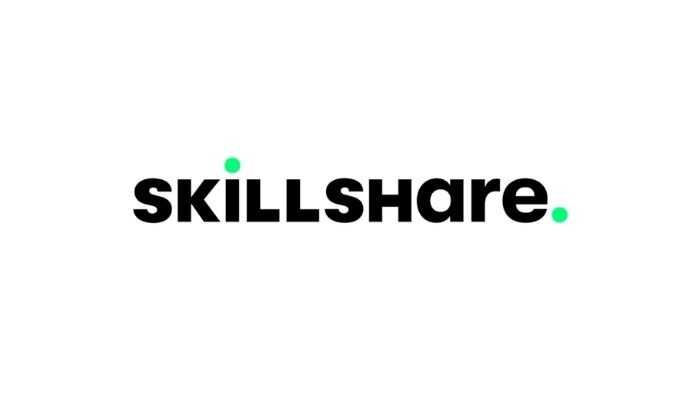
Skillshare has become an education giant, offering over 40,000 courses to its 13+ million users, proving that learning can be accessible to anyone, anywhere, and at any age.
The platform is renowned for its classes in creative disciplines such as photography and sketching but also offers courses in fields such as business and productivity. Its teachers are practising creatives, experts and enthusiasts.
Skillshare works on a subscription-only model. There is a monthly plan (currently $16.99 per month) or an annual plan (currently $99 per year, which equates to $8.25 per month). Both plans give you access to the full Skillshare catalogue.
Skillshare pros
- Classes typically have a great mix of practical and theory
- Active community which can help to motivate and engage learners
- Curated learning makes it easy to continue your learning journey without having to put too much thought into where to go next
- Skillshare has a great class review system which helps the algorithm identify the best classes for you
- Skillshare Perks: discounts for Adobe, Canva, Freshbooks, and more
- Free trial for you to explore the Skillshare catalogue
Skillshare cons
- No certification
- Courses are not audited so the quality is more variable than Udemy
Udemy vs Skillshare
One of Skillshare’s greatest strengths is the opportunity it offers to engage with other learners through its active community. Skillshare is, as the name suggests, all about sharing skills and knowledge. You can upload your own work, comment on the work of others or simply start a conversation.
So, if interacting with others is important to you, Skillshare might be the perfect Udemy alternative.
Plus, with a subscription you can take as many courses as you like. This will most likely be much cheaper than buying the equivalent number of single courses on Udemy.
Check out our Skillshare review and Udemy vs Skillshare for more information.
2. Coursera

Coursera is one of the largest learning platforms in the world. It was started in 2012 by two Stanford professors with a mission to provide universal access to world-class learning.
Just seven years later Coursera achieved unicorn status (a valuation of $1bn+). In 2020 alone, it attracted as many learners as its closest competitor did in its entire existence.
Today, Coursera has 129 million registered users and is partnered with 325+ leading universities and industry educators to offer over 7,000 courses and degree programs. Much of its content can be accessed completely free.
Coursera Pros
- Teaching from leading academics, Nobel prize winners, top authors, c-suite executives and leaders in their respective fields
- The chance to earn a certificate accredited by one of the world’s top organisations
- Lots of free content for you to sample risk-free
- Well-structured and resourced courses
- Huge catalogue of over 7,000 courses
- Prestigious education at affordable prices
- Learn offline
Coursera Cons
- Confusing pricing structure and free content not always easy to find
- Fewer courses in humanities and data science than its rival edX
- The strong focus on professional training make it less appropriate for creatives, hobbyists, or those interested in personal development
Coursera vs Udemy
The main reason for choosing Coursera as an alternative to Udemy is that it offers fully accredited certification from the prestigious institutions that provide its courses.
It is also strongly focused on professional and career development, so if you are motivated to learn as part of a promotion or career change, Coursera is definitely worth your consideration.
You can take over 2,000 courses for free and pay for certification later, so you can explore the platform thoroughly without making any financial commitment.
For more granular detail read our Coursera, Coursera vs Udemy and Coursera certificate articles.
3. MasterClass

MasterClass was launched in 2015 with a simple idea: Everyone should have access to genius. Its 100+ MasterClasses are available in 13 categories and are taught by globally acclaimed icons in their fields of expertise.
So with MasterClass you can step into Gordon Ramsay’s kitchen, go behind the scenes with James Cameron, write a thriller with Dan Brown, or take to the mat with Simone Biles.
MasterClass is renowned not only for the calibre of its instructors but for its cinematic production values and the way it uses storytelling to create a connection between the instructor and you, the audience.
In addition to its 200+ on-demand MasterClasses, the platform also offers time-bound, project-led sessions that you take with a community of fellow students.
There are three ways to access MasterClass, all billed annually:
- Standard: $120 per year (about $10 per month). This plan allows access to all courses on one device at a time and does not include offline downloads.
- Plus: $180 per year (about $15 per month). This plan includes access on two devices simultaneously and allows for offline downloads.
- Premium: $240 per year (about $20 per month). This plan supports up to six devices simultaneously and includes offline downloads.
Each plan provides unlimited access to the full library of courses across various categories, such as Food, Design & Style, Arts & Entertainment, and more.
MasterClass pros
- Learn from the best with passionate, revered and accomplished teachers
- Wide range of choice from a large library of classes
- Affordable and with multi user options
- Access to sessions you join with a cohort of fellow students
- High production values and immersive content that’s engaging and fun
- 30 day no quibble refund policy
MasterClass cons
- No free classes – though you can sample classes for free
- No certificates of completion
Udemy vs MasterClass
Above all, MasterClass is famed for its cinematic production values and the immersive, inspirational experience of learning from an iconic celebrity.
Frankly, there’s no other online platform approaching learning quite like MasterClass. With renowned experts and cinematic production quality, it's definitely worth exploring. The platform offers competitive pricing, especially considering the caliber of instructors. Additionally, their 30-day money-back guarantee ensures you can try it risk-free.
For more information on MasterClass check out our MasterClass, MasterClass Sessions and Best MasterClass reviews.
4. GetSmarter

GetSmarter has over a decade of experience in delivering career-focused learning for individuals looking to stay ahead in the professional landscape and gain qualifications from elite institutions such as Yale and Oxford.
Their short, high-impact courses range from Artificial Intelligence to Sustainability and Disruptive Technologies.
When you enroll, you gain access to a Success Adviser and 2U’s Career Engagement Network, which is packed full of great resources to help you reach your professional goals.
All course materials are accessed through the Online Campus. Here you can ask questions and interact with the teaching team and other students via discussion forums.
GetSmarter charges per course, with prices ranging from around $550 to around $3,800.
This may seem pricey. But bear in mind that gaining an in-person qualification from any of GetSmarter’s partner institutions would set you back tens of thousands of dollars. Yet you are still being taught by the same tutors who teach in person, with a huge range of resources and plenty of support.
GetSmarter pros
- Quality certifications from top level institutions
- Wide variety of guest lecturers on many courses to broaden your perspective and bring additional expertise
- Highly relevant, data-driven courses designed to tap into the future of professional development
- A Success Advisor to answer any administrative/technical questions and help you manage your time
- Access to 2U’s Career Engagement Network, and the Online Campus, where you can interact with teaching staff and fellow students.
- Accredited certificate from a top institution.
GetSmarter cons
- Courses are relatively long and in the upper price range for ‘short’ courses
Udemy vs GetSmarter
The main reasons for choosing GetSmarter as an alternative to Udemy are that it offers accredited certification from prestigious institutions, and direct support from tutors and fellow students via its online campus and career engagement network.
If you’re serious about investing in leading-edge, elite-quality learning that will make a real impact on your professional development, GetSmarter is well worth your consideration.
GetSmarter has an amazing range of courses designed to equip you for the workplace of tomorrow and make you professionally resilient with highly sough-after skills and expertise.
You can read more about GetSmarter here.
5. Educative
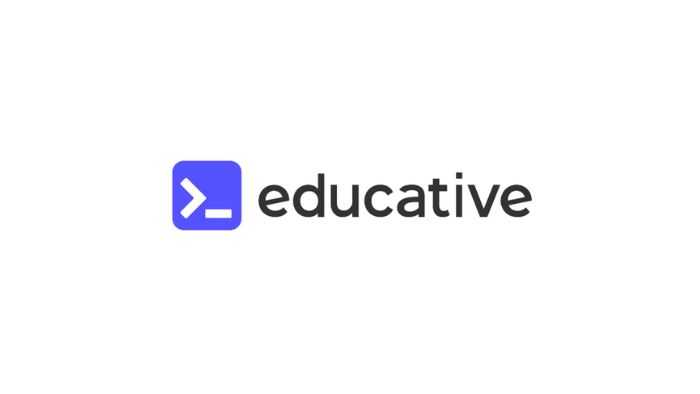
Educative is an online learning platform for software developers of all levels.
Courses are specifically designed to teach the most in-demand skills. You can also take interview-focused assessments and practice with in-browser coding. Courses can be taken individually or as part of a ‘Learning Path’, such as ‘Become a Front End Developer’ or ‘Zero to Hero in Python for Machine Learning’.
With new courses added every week, this is a fantastic resource offering tutorials in coding languages, Software Development, Mobile App Development, System Analysis and Design API and more.
Educative is trusted by 1.9 million developers working at companies such as Netflix, Meta, Google, Amazon and Apple.
Some course content can be accessed for free, but you’ll need a membership to access the bulk of Educative’s offerings. These start at $16.66 per month.
Educative Pros:
- Dozens of constantly updated courses covering in-demand software development skills, from Python and Java to Quantum Computing
- Specialist courses on interview skills and preparation
- Course authors who are experts in their field, including engineers from Facebook and Microsoft
- Detailed personalisation to find out how best to hone your skills, and save you time
- Hands-on In-browser coding so you can practice your new skills
- The ability to earn certificates to impress future employers
Educative Cons:
- No star rating system for courses, making it harder to know if other users have benefited from them
- Text based learning that, whilst it is intended to speed up the learning process, might not be the best method for everyone
Udemy vs Educative
If you're a software developer solely looking to upskill, explore your options and ace interviews, then Educative is a great alternative to Udemy.
Educative is a brilliant place to master in-demand skills to help you propel your career forwards, with plenty of opportunities to develop your coding and put your new knowledge to the test.
The most unique part of Educative’s service is the interview prep and support, so this would be a really valuable resource for anyone interested in moving up the ladder or changing jobs.
Read our full Educative review for more detail.
6. Springboard

Springboard offers a combination of fully flexible online courses in fast-growing fields like Tech Sales, AI and Software Engineering with real human support from a mentor, career coach and student advisor.
They even offer a job guarantee on select courses — if you don't land a relevant job within six months of graduating and meet specific eligibility requirements, you'll receive a full refund of your tuition. To qualify for this job guarantee, you must:
- Enroll in an eligible course: Springboard offers a job guarantee on select Career Tracks.
- Meet eligibility requirements: Ensure you fulfill the criteria mentioned (e.g., language proficiency, age, degree, work authorization).
- Complete the course: Finish all coursework, projects, and assignments within the designated timeframe.
- Engage in active job search: Actively apply for jobs, network, and participate in informational interviews as advised by Springboard's career services.
- Participate in career coaching: Utilize the career coaching sessions to enhance your job search skills and strategy.
- Job guarantee timeframe: If, after six months of graduating and meeting all requirements, you haven't secured a relevant job, Springboard will refund your tuition.
The average salary increase of Career Track graduates from Springboard’s programs is over $11,490, with 83.7% getting a new job within 12 months of graduating.
There are some free short courses available (without one-to-one mentoring and career support). Paid courses are purchased individually with prices ranging from $99 to $8,000. You can either pay upfront, make monthly payments, or defer payment until after you find a job (although you will pay interest). These are premium courses with tailored career support, and the pricing reflects this.
Springboard pros
- Courses based on highly desirable skills such as AI and Data, Design, Software Engineering, Cyberscurtiy and Tech Sales
- Real-life human support – this is arguably Springboard’s most valuable feature, providing direct access to one-on-one mentoring with industry professionals.
- Build a portfolio as you learn – Springboard is focused on learning through doing, meaning that you will develop your own projects in a portfolio that you can present to prospective employers
- A portfolio review from in-house hiring managers
- Strong focus on career-ready skills – these courses are updated regularly to reflect changes in industry best practice and new developments, meaning that you can be sure you’re learning the most up-to-date and relevant skills
Springboard cons
- Springboard doesn’t actually produce a lot of its own content, rather they work with industry professionals to curate the best resources from around the web
- Not many courses – Springboard produces around 1-6 courses per topic, so there aren’t a lot of options. However, these courses are pretty rigorous, and include plenty of information on a variety of topics
Udemy vs Springboard
Anyone who is actively looking for a job in fields such as tech sales, cybersecurity and AI and feels they would benefit from the platform’s incredible mentoring opportunities should consider Springboard as an alternative to Udemy.
Springboard’s mentoring system pairs students up with career coaches and mentors to help them land jobs in their chosen fields.
You can browse their free content or shorter courses if you’re still on the fence about taking a more intensive course, as they have plenty of great resources. And with a seven day refund policy and the job guarantee for some courses, the risk of losing out is minimal.
Find out more about Springboard here.
7. Pluralsight
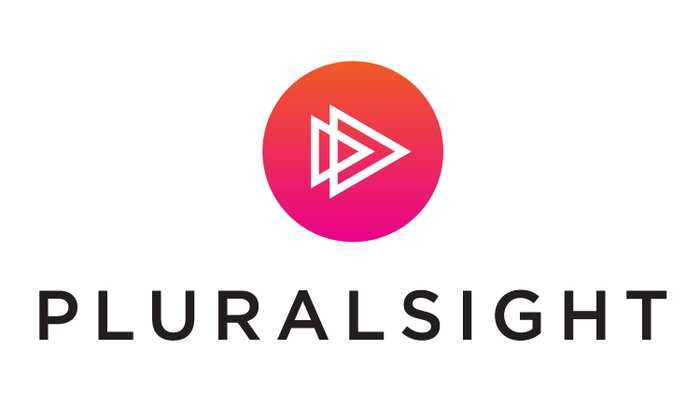
Pluralsight was founded in 2004 by Aaron Skonnard and a range of other tech professionals. It has over 7,000 courses in its library taught by 1,400+ subject matter experts.
The company is aimed at providing training in the tech skills of tomorrow to both individuals and businesses. Topics include cyber security, IT ops and software development.
You can purchase a standard subscription which provides access to the Core library of 2,500+ courses. This is either $29 a month or $299 up front for the year.
You can also gain access to the Expanded library of 7000+ courses with a premium subscription. This is $45 per month or $499 up front for the year.
Pluralsight pros
- Comprehensive range of tech courses
- Free skill and role assessments
- Highly qualified instructors
- Equips you for the changing world and job market
- Additional learning support including Lab and Pathways
- Free 10 day or 200 minute trial (whichever comes first) to give you a good taste of what the platform has to offer
- Good email and phone support
- Allows you to learn offline and on the go
Pluralsight cons
- Focussed purely on tech based subjects
- No free content (other than what you can get through in the free trial)
Udemy vs Pluralsight
If you’re interested in acquiring the skills you need for the jobs of tomorrow but you’re not sure where to start, Pluralsight could be a great alternative to Udemy.
Pluralsight allows you to take skill and role IQ assessments upfront at no cost. These will assess your aptitude for the relevant skill and suggest courses that suit your current level and will help you progress and develop further.
If you feel you could benefit from that kind of guidance then Pluralsight is definitely worth your time and attention.
You can read more about Pluralsight here or read our direct comparison, Udemy vs Pluralsight.
8. CreativeLive
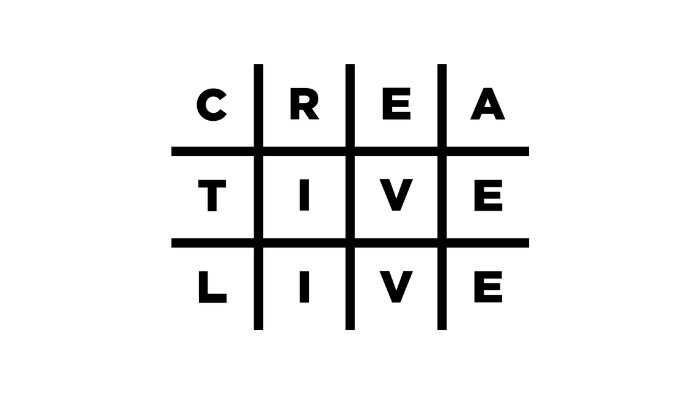
Creative Live was founded in 2009 to provide access to creative education and workshops for a community of passionate and ambitious individuals. Today they have 2000+ classes, more than 700 worldwide instructors, and 10 million+ students.
The platform focuses on helping creative professionals succeed in their endeavours. Either by instilling them with the business savvy needed to thrive, or by developing the practical skills relevant to their particular creative industry.
The platform provides a range of services from live-streamed masterclasses to longer and more comprehensive courses. You can choose to improve the skills you already have or learn something completely new!
CreativeLive currently offers two subscription plans:
- Annual Plan: $129 per year (billed annually), equivalent to $10.75 per month. This is their best value offer.
- Monthly Plan: $29 per month.
Both plans provide access to the same features, including over 2,000 on-demand classes, downloadable lessons, goal setting, progress tracking, and exclusive Fast Classes.
CreativeLive pros
- Great variety of courses with over 2000 classes to choose from
- Learn from top notch instructors including world-class creatives, cultural icons like Tim Ferriss, and Pulitzer Prize winners
- Exclusive conferences and livestreams
- Download classes for offline viewing
- Goal setting and learning paths
- Support from the CreativeLive community of like minded individuals
CreativeLive cons
- No formal certification or degrees are offered
- No free trial is available before committing to a subscription
- Not ideal for beginners as most courses cater to intermediate or advanced learners
Udemy vs CreativeLive
Creative professionals wishing to take their skills to the next level, turn a hobby into a business or boost existing commercial success will find that CreativeLive has more to offer than Udemy.
Whilst there are courses on Udemy in the creative arts, these are far and few between. And are likely to be rather more dry and academic than anything you will experience on CreativeLive.
Plus there’s the added bonus of being able to interact with a creative community and take part in live master classes and conferences.
So if creativity is your thing and you would like to engage with others who feel the same way, CreativeLive is definitely worth exploring.
Check out our CreativeLive review for further details.
9. FutureLearn

With the chance to learn from top colleges at a fraction of the price, FutureLearn is an online learning platform with 18+million learners and 2,000+ courses. It’s partnered with 250+ prestigious institutions to deliver world-class education in a range of subjects.
FutureLearn offers courses ranging from bite-sized to full online degrees. Through the site, you can upskill, pursue a passion, or even pave a new career.
There are several ways you can use FutureLearn. You can take courses for free (no certificates included) or subscribe to ‘Unlimited' (annual or monthly) for access to all courses. The annual subscription is around $321/year (or $26/month).
You can also take an ExpertTrack (not included in the subscription). These consist of a series of courses which specialize in a particular pathway. After a seven day free trial the cost of these is around $46 a month.
FutureLearn Pros
- 2,000+ courses in categories like computer science, business, and engineering
- Learn from prestigious institutions such as The Career Academy and Digital Marketing Institute
- Free access to short courses (without certification)
- Printed and digital certificates
- Option to buy lifetime access
- Great mixture of video learning and assessments
- Comment sections to encourage open discussions
FutureLearn Cons
- Limited selection of free courses
- Limited course interaction and community engagement
- Mobile app has limited functionality compared to the website
- Subscription model can be expensive if you only want to take a few courses
Udemy vs Future Learn
FutureLearn would suit anyone looking to progress in their jobs or find a new career path.
However, the site prioritizes upskilling through specialist ‘ExpertTracks’.
If this is something that you feel you could benefit from, you can set up a free account and browse what the platform has to offer before making a commitment
For more detail about FutureLearn, read our FutureLearn review.
10. edX
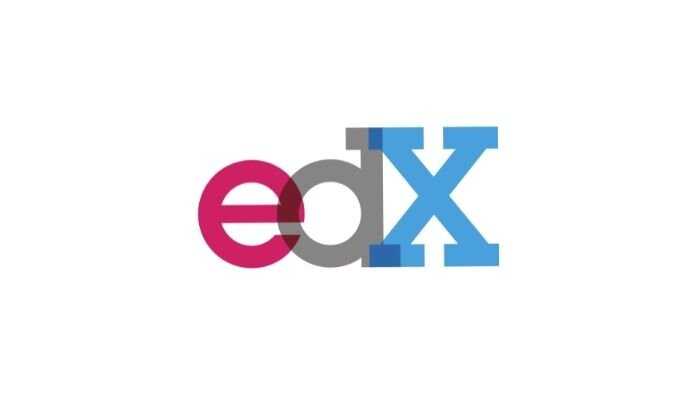
Like Coursera, edX is partnered with leading institutions and universities to offer world-class, open-access education online.
More than 160 other institutions have since come on board with edX and it now has 100 million enrollments and offers 3,500+ courses across 30 subject areas.
Many of its courses can be taken for free without certification.
If you wish to receive an accredited certificate course charges vary from around $50-$300. Programmes up to the Master’s level are also available.
edX pros
- 3,500 courses across a diverse range of subjects
- Teaching from award winning academics from the world's best universities, many of whom hold Nobel Prizes
- Thousands of free classes with the option to pay for a certificate
- Classes are extremely comprehensive and taught with an impressive mix of audio, visual and textual teaching styles
- Certificates are accredited by the partner universities and institutions
edX cons
- The edX website is a little less easy to navigate compared to its rival, Coursera
- Course completion deadlines can be strict
- Limited instructor interaction and feedback compared to other platforms
- Some courses have outdated content or materials
- Financial aid can be difficult to obtain for certain programs
Udemy vs edX
If you are interested in accredited certification from prestigious institutions, edX is worth considering. The key difference between it and its closest competitor, Coursera, is that it offers more courses in the humanities and natural sciences.
So if you are more interested in those subjects, value certification and enjoy a structured academic approach, then edX is definitely worth considering as a substitute for Udemy.
Find out more about edX in our edX review.
11. Codecademy

Codecademy, as the name suggests, is an online learning platform that specializes in offering courses which teach coding.
Its courses cover 14 different programming languages and are designed to target the full range of abilities. So whether you’re at the start of your coding journey, want to learn a new language or hone your existing skills there is something for you on Codecademy.
There are two ways to experience Codecademy. You can either take advantage of the free basic plan, or purchase the paid pro plan which gives you full access to everything the platform has to offer. This includes peer support and certificates of completion.
Codecademy pros
- A free basic plan giving you access to a range of lessons and daily tasks
- Offers courses for all skill levels including new starters
- 14 programming languages are taught, including HTML, Javascript, Python and C#
- Strong community to support you in your learning
- Enables you to create a portfolio of projects to showcase to potential employers
Codecademy cons
- Certificates of completion are not accredited
Udemy vs Codecademy
Udemy does offer courses in coding, but if coding is what you want to focus on, then a specialist platform is certain to have more to offer.
Regardless of where you are on your coding journey, Codecademy is specifically designed to meet everyone’s coding needs. From entry-level courses that make coding fun and accessible for beginners, to advanced courses that will fine-tune your existing skills.
And Codecademy also provides career and skill path programs thereby helping you to begin, or progress, your coding career.
So if coding is your thing, Codecademy has you covered. For more granular detail read our article, Udemy vs Codecademy, which is better?
12. Datacamp
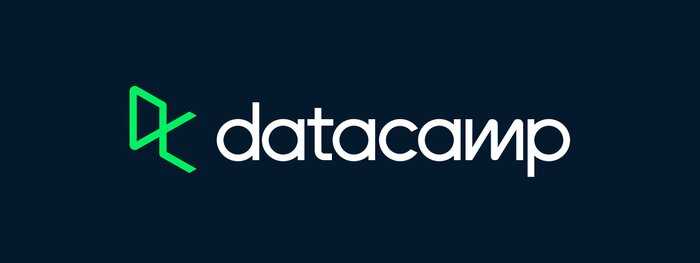
With over 9 million users across 180 countries, Datacamp is one of the fastest-growing and most popular ways to learn about data science.
Datacamp aims to close the data gap within companies and between groups across the world by making access to data skills available to everyone.
With 9 million learners, 350+ interactive courses and over 2000 parent companies, Datacamp is one of the best ways to become equipped with the data science skills you need for the changing world of today.
You can purchase individual courses from Datacamp or Skill and Career Tracks. These are made up of a curated mix of courses to help individuals gain everything they need to follow a specific career path. You can also purchase an annual subscription for $224 per year which gives you access to everything the platform offers.
There are also live events and a wide range of tools for you to practice your skills with – including competitions, projects and assessments.
Lastly, Datacamp allows you to learn for free. If you choose this option you’ll be able to access a number of introductory courses in full, and the first chapter of every major course at no cost.
Datacamp Pros
- Gives you practical skills you can apply to the modern workplace
- Teaches you how to be an all-round data scientist
- A range of choices in how you learn beyond traditional teaching including interactive lessons and fun practical exercises
- Well organized and structured
- Methodically introduces challenging and useful concepts
- Courses taught by 270+ experts from institutions like Google, Caltech and Anaconda
- Learn for free option
Datacamp Cons
- Certificates of accomplishment are awarded but are not accredited
- No refund option
Udemy vs Datacamp
Datacamp is a great place to learn how to be a data scientist.
It will equip you with all you need to understand the world of data. And if you have a specific career in mind, its Skill and Career Tracks are curated to focus your efforts on exactly what you need to succeed in that area.
The combination of quality teaching, interactive lessons, practical exercises and other resources all combine to make this a great way to learn.
So if a future in data science is something you would like to explore, and you enjoy interactive and practical teaching methods, Datacamp is an option worth investigating – especially as you can sample a lot of its content for free before committing to purchase.
For more details check out our full Datacamp review.
13. Udacity
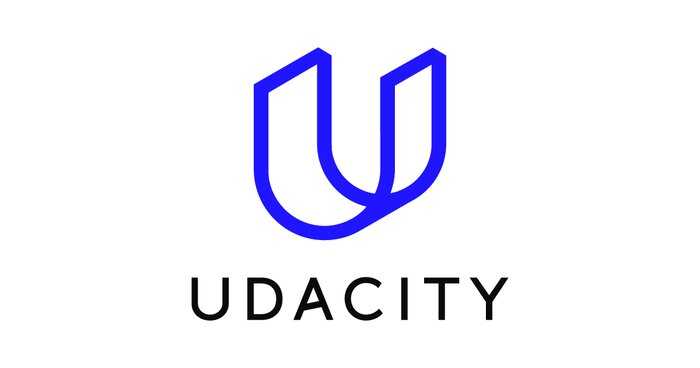
Udacity is partnered with industry leaders like Google and Amazon and is considered a breakthrough provider when it comes to digi-tech learning.
First launched in 2011 by two Stanford teachers, Udacity seeks to equip you with the skills you’ll need in “jobs of the future.”
It specializes in offering nanodegrees. These are 3-4-month programs that help you master a set of skills through a series of lessons and projects. You receive personal feedback from a mentor, and, at the end of the nanodegree, you get a certificate.
Udacity offers two subscription options for accessing their entire catalog of Nanodegree programs and courses:
- Monthly Subscription: $249 per month
- 4-Month Subscription (Best Offer): $846 (15% discount) – This is the most cost-effective option for learners looking to complete a Nanodegree program.
The 4-month subscription provides the same benefits as the monthly subscription but at a lower overall cost. However, after the initial 4 months, the plan automatically converts to the month-to-month plan at $249 per month unless canceled.
Udacity has become a leading provider of tech-focused online education, with over 14 million users and 170,000 Nanodegree certificates awarded. Their programs are designed in collaboration with industry leaders like Google and Amazon, ensuring that learners gain in-demand skills for the future workforce.
Udacity pros
- Expert mentors with real-world experience
- Extensive course catalogue focused on building your skillset in computer science and business
- Career services to help you find and develop a professional path
- Quality content co-created with leading partners
- A number of free courses to allow you to sample the platform at no cost
- Certificates of completion from a respected organization
Udacity cons
- Certificates are not accredited
- Quite costly
Udemy vs Udacity
If you are aiming to start, or further, a career in the world of tech then Udacity could be the alternative to Udemy you’ve been looking for.
Udacity is partnered with tech giants who design its nanodegrees in partnership with the platform. So its programs are both well-recognized and highly respected by future employers.
On top of this, Udacity provides career services and coaching to help you on your way. If this sounds like something you could benefit from then Udacity is definitely worthy of your consideration.
For more details, check out our Udacity review or our articles Udacity vs Udemy and best Udacity courses.
14. LinkedIn Learning

Launched in 1995, LinkedIn Learning is one of the biggest open online course providers to date.
The platform boasts 27 million+ users. It offers 16,000+ courses in 30+ categories from industry experts to help you grow your professional and creative skill set.
It offers two subscription options. There is a monthly subscription at $39 per month or a yearly subscription at $24 per month (billed annually). You can also purchase courses individually from around $38.
LinkedIn Learning pros
- Learn from highly rated instructors with real-world experience
- Chance to earn and display a LinkedIn Learning certificate
- Broad scope of topics to choose from
- One month free trial giving you plenty of time to decide if the platform is for you
- Ability to download courses to the mobile app for offline viewing on the go
- Seamless integration with LinkedIn allows you to easily showcase completed courses and earned certificates directly on your profile, enhancing your professional credibility and visibility to potential employers
LinkedIn Learning cons
- Certificates are not accredited
- Big focus on business and technology topics
Udemy vs LinkedIn Learning
LinkedIn offers the opportunity to explore the platform for a full month before parting with any money.
If you want a real taste of what a platform is like before committing yourself to purchase, then LinkedIn is definitely a platform you should try. Don’t forget to cancel your subscription before the end of the free trial if you decide the platform is not right for you.
You can learn more about LinkedIn Learning from our review of the platform and our articles best LinkedIn Courses and Udemy vs LinkedIn Learning.
About Udemy

Launched in 2009, Udemy is now the largest Ed Tech company of its kind. It gives everyone the opportunity to create and offer quality controlled online courses on its platform.
Udemy has over 64+ million registered users and offers 210,000+ courses across 13 categories. It's used by the likes of Apple, Unicef, the Citi group and Box to upskill their employees.
Udemy is an all round provider, offering courses in both professional as well as personal development.
You can buy courses singly on Udemy from around $12, or purchase a Personal Plan for $26.99 per month.
Udemy pros
- Comprehensive range of courses
- Passionate instructors with many high profile contributors
- Courses that equip you for the changing nature of work in addition to those that are creative and fun
- Competitive pricing with constant sales, deals and promotions
- 500+ free courses
- Instructors and courses are audited before being allowed on the platform
Udemy cons
- Course certificates aren’t accredited by any university or institution
- Course quality varies due to so many contributors
What to look for in a Udemy alternative
What to look for in a Udemy alternative
Range and number of courses – are you looking for a wide range of courses or would you prefer a narrower choice – perhaps within a specific field?
Course quality – Both Udemy and Skillshare allow anyone to offer courses on their platforms (albeit with some quality assurance) which can lead to variability in course quality. Whereas platforms that partner with elite educational institutions (Coursera and edX) offer more consistency. Most platforms provide reviews and star ratings for courses and it's worth checking these out before committing.
Availability of free courses or free trials – If you're on a budget or you just want to dip your toe in the water, free courses or trials give you the opportunity to get a feel for what's on offer for no risk.
Certification – Certifications are important if you want to ensure your learning is acknowledged and taken seriously. Udemy offers certificates of completion, but for the most part, these are not accredited. If certification really matters to you, it might be better to look at Coursera or edX, whose certificates are accredited by their partner institutions.
Price: What is the cheapest alternative?
Coursera and edX offer the most free courses without certification. Codecademy's basic plan is also free but with limited content. For paid options, Skillshare's annual plan at $8.25/month provides the best value, especially for creative learners.
Conclusion
Udemy is the largest Ed Tech company of its kind. Its course catalogue is vast and varied and 80% of Fortune 100 companies trust it for employee upskilling including Apple, Unicef, PayPal, Accenture, Samsung and Unilever.
It may seem difficult to find a better platform than Udemy. But that does NOT mean there isn’t one!
This article provides a comprehensive guide to choosing the best Udemy alternative for your learning goals, covering various needs and interests. Investing in yourself is key, and finding the right platform is crucial for maximizing your learning experience. Hopefully, this guide has simplified that process for you.
Good luck and enjoy your learning.
Related articles: MasterClass alternatives, Coursera alternatives
Udemy Alternatives -FAQ:
Our top choice is Skillshare due to its large course library, engaged community and subscription option
Udemy is 100% legit. It is the biggest EdTech company of its kind and 80% of Fortune 100 companies trust it to upskill their employees

Liz Hurley has 30+ years of high school teaching experience and is one of our senior writers here at Learnopoly.


Pretty! This was a really wonderful post. Thank you for your provided information.
Thank you!
Would love to incessantly get updated outstanding website! .
Thank you! I really appreciate your support. Stay tuned for more updates—I’ll keep the content coming!
When I originally commented I clicked the -Notify me when new comments are added- checkbox and now each time a comment is added I get four emails with the same comment. Is there any way you can remove me from that service? Thanks!
Thanks for reaching out! I’m sorry for the inconvenience. Unfortunately, I don’t have direct control over the notification settings, but you should be able to manage your subscription by looking for an ‘unsubscribe’ or ‘manage notifications’ link in one of the emails. If you’re still having trouble, let me know, and I’ll do my best to assist!